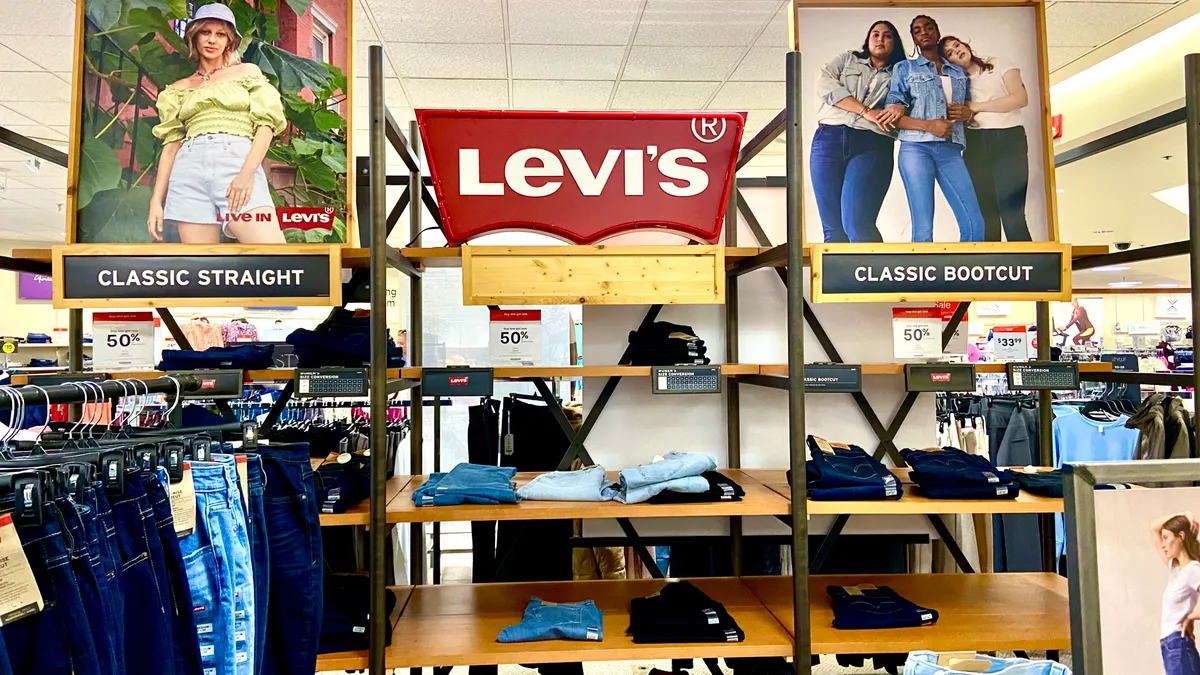The Chinese government moved assertively and surprisingly three times last week to devalue the renminbi, also known as the yuan, in an effort to stimulate the faltering Chinese economy.
Indeed, several economists are now more worried than ever that the Chinese economy has weaker spots than previously realized. And that has some serious implications for retailers, for a variety of reasons.
(The name of China’s currency, by the way, can be the source of much confusion. “Renminbi,” or RMB is the government’s official name and it translates as “People’s currency.” “Yuan” is more commonly used, even in China. Both, essentially, are like saying “dollar” in the U.S.)
Retail Dive takes a look at what's happening, and the implications these events may have for retailers of all kinds.
What’s going on
One of the biggest sources of tension in the markets around the Chinese government’s move is the sense that the economic picture that’s been painted for the last several months could have been something of a mirage.
Some economists are speculating that official numbers may not be quite accurate, and that some areas of the vast country may be experiencing recessions, reports the New York Times. The country is seeing a slowdown in real estate and building construction and a pullback in consumer spending.
Add to that a natural saturation of consumer markets in larger cities, which until recently had been hosting fast-paced growth thanks to a growing middle class. Chinese retail companies like Alibaba, and the U.S. and European brands linked with Alibaba’s marketplaces, have sought to continue their growth through e-commerce in more remote areas of the country. Slowdowns in the economy could impede the movement to that next frontier for growth.
“To be honest, no one has a clue where the economy is, and I don’t think that it’s properly measured,” said Viktor Szabo, a senior investment manager at Aberdeen Asset Management, told the New York Times. “Definitely there is a slowdown. You can have an argument about what level it is, but it’s not 7%.”
Luxury retailers are already suffering
The weakened currency is the Chinese government’s lift to companies that export to Europe, the U.S., and other parts of Asia because Chinese products are less expensive than without the devaluation.
But luxury retailers like Tiffany & Co., which have been buoyed by Chinese consumers’ enthusiasm for luxury imports, are hurt in two ways. First, luxury goods, mainly from Europe and the U.S., are more expensive in China (especially when you take into account the strong dollar).
And Chinese travelers encounter even less attractive exchange rates and higher prices when they shop in New York, San Francisco, and Paris, which they love to do.
Indeed, some 174 million Chinese tourists were estimated to spend $264 billion by 2019, up from the 109 million who spent $164 billion in the U.S. in 2014, according to research by Bank of America Merrill Lynch. And that’s up from 10 million Chinese tourists to the U.S. in 2000. Worldwide, Chinese tourists spent nearly $500 billion in 2014.
That trend and those estimates could be altered by the slowdown in the Chinese economy and the devaluation of the yuan, though at this point, it’s not certain by how much.
“This modest devaluation is another reminder that as powerful as the Chinese consumer is, luxury businesses would be wise to diversify their growth strategy across more than one demographic,” Marie Driscoll, CEO of Driscoll Advisors, New York, told Luxury Daily. “This move is unlikely to seriously impact luxury sales, but it is another data point that is not a positive.”
It's not just luxury
Not just luxury retailers, but any companies that export to China will feel increased headwinds due to the yuan devaluation. Apple Inc. in particular could feel a push as Chinese-made smartphones become relatively cheaper, speeding up the gains they’ve already made in recent quarters.
“Chinese tech companies across sectors are all pushing out into the world,” Xiang Ligang, CEO of Chinese telecommunications industry website cctime.com, told the Wall Street Journal. “The yuan devaluation will make these products that much more competitive overseas.”
(That also means that the cost of Chinese manufacturing, even for Apple, could also come down, except to the extent that deals are made in U.S. dollars.)
By the same token, retailers like Wal-Mart Stores Inc. that sell a lot of Chinese imports could do better.
A ding to the overall U.S. economy
The cooling off of the Chinese economy will not only hurt luxury and middle-of-the-road importers, but also could ding the somewhat incomplete recovery in the U.S., some economists say. The Federal Reserve was seen as set to raise interest rates possibly in September, considering the “near normal” state of the economy and the increased strength of the labor market. But that could change now.
"This creates uncertainty around the Fed, an uncertainty that many felt was past us," Stephen Guilfoyle, managing director of NYSE Floor Operations at Deep Value Inc., said in a note.
What we may see more of is U.S. retailers pushing the line that the strong dollar (made worse by a weakened yuan) is the reason for falling sales—yet many of those same retailers “can’t blame it all on China,” says CNBC’s Bob Pisani.
Consumers mostly hurt
Perhaps the worst news for retailers is that a generalized effect of China’s slowdown and currency tamp-down is that consumers could have a harder time shaking the wage gap, finding good jobs, or accumulating much interest for their savings.
Mortgage rates and gas prices could stay lower. But overall, it could be a continuation of the weird limbo in which this economy has seemed to be caught.
Still, while there’s been some initial panic in the markets, especially with day two of devaluation, the Chinese government’s move was rational, according to New York Fed President William Dudley.
"What's going on in China has huge implications for the rest of the world ... (and) has huge implications for demand in other countries and significant implications for commodity prices," Dudley after giving a speech Wednesday. "It's too soon to draw any firm conclusions about what this means.”






















